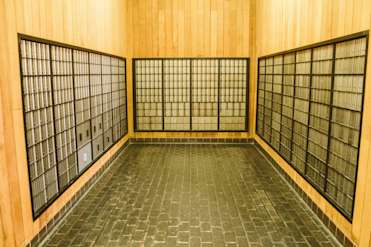
Starting your own business
Alternatives to a PO box address for your small business
Simple, smart accounting software - no commitment, cancel anytime

FINANCE, BUDGETS AND CASHFLOW
Using your car for work is a valid business expense, along with train, bus and air travel, or even parking.
Although you can’t claim for your daily commute to and from your permanent place of work, there are lots of reasons to use the car - maybe you need to run errands to the bank or the stationers, or drive to the airport for a business trip.
But are you claiming back all the miles you cover?
For many of us, business mileage is one of those expenses which are too easy to postpone. It’s much more complicated to keep a constant track of your car journeys than it is just to stick a train ticket in a file.
Perhaps only part of your journey is a legitimate business expense – most self-employed people use their cars for a mix of business and leisure. So you can claim for the client meeting but not for the trip to the gym afterwards.
It’s important to keep a close track, but to be honest most of us forget to do so at the time.
If you’re a sole trader, you can account for your mileage in one of the following two ways. However, if you’re a director of your own company, you can only use the second method. This is how they work:
The actual expenses (or full cost) method. Add up all your motor expenses for the year and work out the business percentage, based on the proportion of business miles you do. Don’t forget to keep a close track of your mileage, including the purpose of each trip. This will include expenses like insurance, repairs, servicing, MOT, breakdown cover and fuel.
Standard mileage deduction. This way is normally simpler, although you’ll need to keep a detailed mileage log. You calculate your car, van or motorcycle expenses using a flat rate for mileage. Mileage rates are 45p per mile for the first 10,000 miles, and then 25p per mile. Note that these rates are the same no matter how expensive your car is to run.
Here’s what the tax calculation looks like, courtesy of HMRC:
You drive 11,000 business miles over the year
10,000 miles x 45p = £4,500
1,000 miles x 25p = £250
Total you can claim = £4,750
You don’t have to use flat rates for all your vehicles. But once you use the flat-rate method for a vehicle, you must continue to do for as long as you use that vehicle for your business. You can claim all other travel expenses (for example, train journeys and parking) on top of the other running expenses.
Actually there is a third way. And we think it’s by far the easiest and most efficient.
You can use accounting software like the mileage tracker mobile app in QuickBooks, [link] for “simplified expenses”. The mobile app has a mileage calculator to track each journey. It can automate your deductions and calculate each of the above two methods for you.
(Just so you know, this method of simplified expenses can also be used for calculating expense claims for working from home and living in your place of business.)
Sandra Dowson uses the mileage tracker mobile app in QuickBooks, to record car journeys for her dog-care businesses.
“This feature is brilliant,” she says. “It’s something I never used to claim for or think about. Now I can monitor every mile. For my Doggy Day Care business there’ll be a daily car run: two or three calls before I take them off to the park. It’s all business mileage I can claim, which saves me hundreds or thousands of pounds.”
Another Intuit customer, Lisa Pierce (who runs a jewellery business called Beanstalk Keepsakes in Bracknell, Berkshire) also uses the QuickBooks mileage tracker. She claims car mileage each week because she drives to appointments with customers. “The QuickBooks app on my phone tracks my mileage. I wasn’t doing this before. My accountant suggested writing down the mileage on a piece of paper each time I get in the car. But I never remembered to do it. I tried to recall the journeys I did but I never claimed back the mileage I did.”
Claiming business mileage can be so much less hassle. And you can save yourself a lot of money by using the QuickBooks mileage tracker app.
We hope we’ve helped you better understand how to claim business mileage. At QuickBooks we understand there are obstacles to the smooth running of any business - we strive to offer you solutions which can simplify your taxes and help you keep on top of your expenses.
9.00am - 5.30pm Monday - Thursday
9.00am - 4.30pm Friday